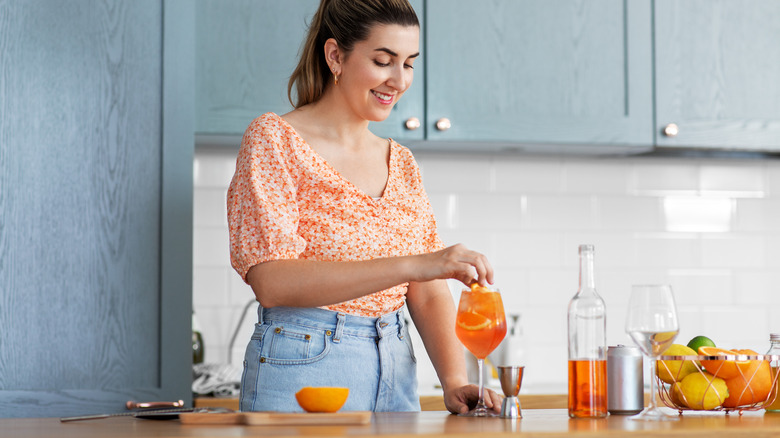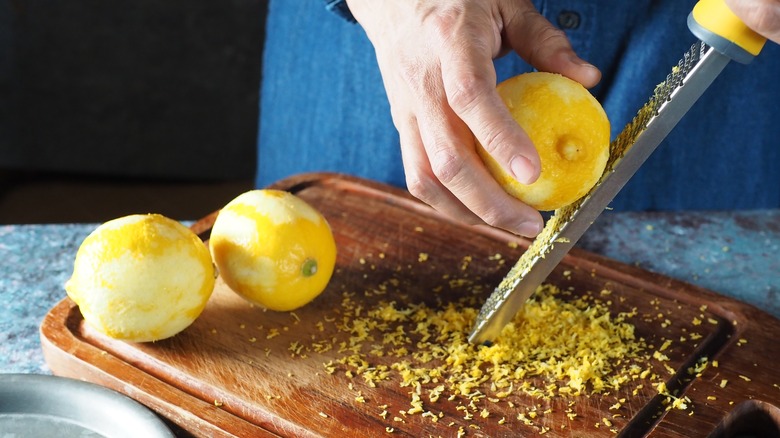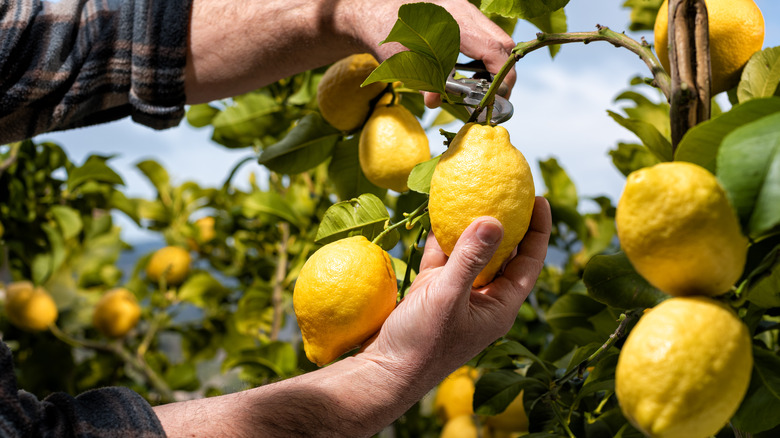The Gardening Hack That Uses A Leftover From Your Home Bar For Acidic Soil
Before you throw out those used lemons from your home cocktail bar, know that they can be beneficial to your gardening process. One main way they help is by adjusting the pH level of the soil. Lemons are acidic in nature so if your soil is too alkaline, you can use their juice or peels to increase the acidity. This hack is especially beneficial if you have plants that prefer acidic soil like blueberries or azaleas.
The first thing to do before trying this out is to consider the specific needs of the plants you're growing and the characteristics of your soil. It is a good idea to test the current pH of your soil and find out what your plants' preferred pH ranges are. This is so you mark your starting point and don't increase the acidity too much over time. Now, you can gather your used lemons from the bar. Both the peels and the juice can work for this hack.
How to use lemons to make soil more acidic
To use the peels, they need to be grated or crushed into tiny pieces then they can be added to the soil as an amendment. They will release nutrients into the soil when they break down and can help improve the soil's structure. For new plants, add them into the soil by mixing them into the bottom of planting holes. For established plants, spread them on the surface of the soil around their base and work them in using a rake or fork.
To use the juice, dilute two tablespoons in a liter of water and add to the soil a few times a week. Avoid watering the leaves as it can cause damage. After a few weeks, retest the pH of your soil to see if it is more acidic or if you need to keep going. Always use this gardening hack in moderation and monitor the effects so you can make any necessary adjustments to the amount of lemon juice or peels you use.
How lemons can be used while gardening
Another way to use lemon peels in your garden is to add them to your mulch and compost. They can help retain moisture in the soil, enrich the soil with nutrients, and improve its texture. After breaking down, they will become organic matter for your compost. Placing your used lemons around your garden beds or inside pots can also deter insects and other pests from disturbing your plants because they don't like the scent.
Lemons can also be helpful in various stages of the gardening process. One unique way they can be used creatively is as biodegradable seedling starters if they've been cut into two parts. To do this, scrape the rind down to the white part and poke a hole underneath for drainage. Next, fill it with a starting mix and plant your seed in it. Once the seedling is ready to be transplanted, you can plant the whole thing in the soil where the peel will eventually decompose and provide nutrients to the young plant.


